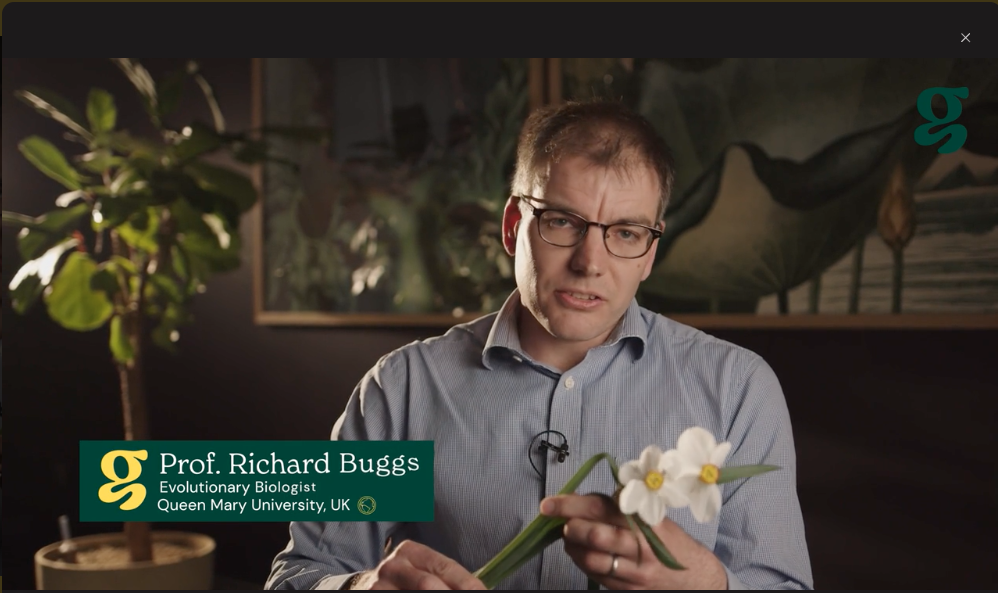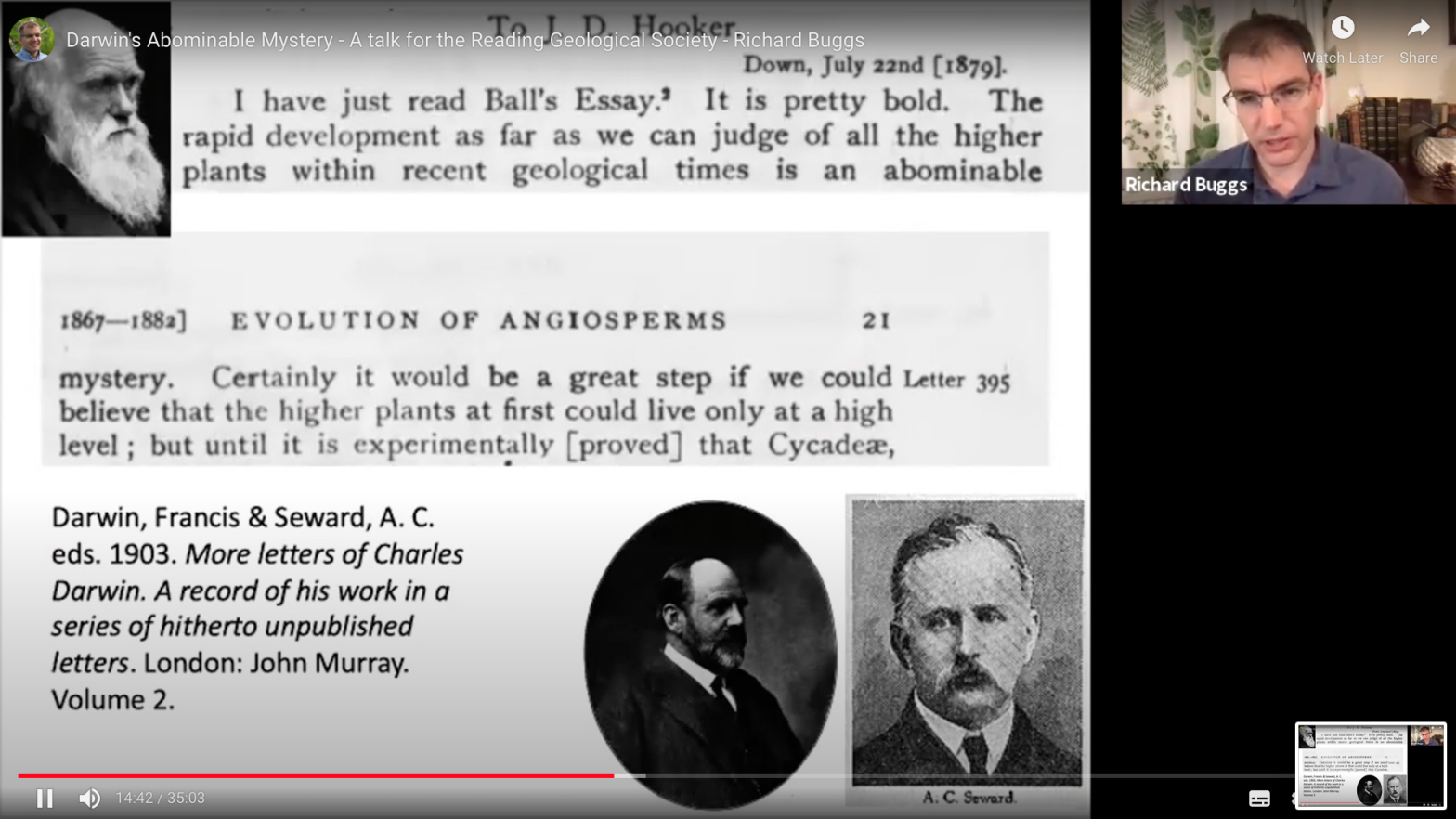Blog
-

Science moves closer to Adam and Eve?
Yesterday, the journal Science published a study providing evidence that humans are descended from very small population. The authors detect a bottleneck lasting about 100,000 years with an average effective population size of about 1280. They date this to about 813,000 to 930,000 years ago, placing it before the divergence of Neandertals and Denisovans from […]
-

Public lecture “Trees of Life: Do they exist?”
In gave my inaugural lecture as Professor of Evolutionary Genomics at Queen Mary University of London on 16th November 2022, the film of which can be viewed below. Inaugural lectures are a chance to give a personal view on one’s research field, at a level that will be understood by the whole university and the […]
-

Natural v. Artificial Selection
Last week I published a short article in Molecular Ecology on evidence for natural selection. It has proven difficult to show natural selection occurring in real time in wild populations. New approaches may help, and these are being pioneered in studies of Soay sheep. While commenting on these new approaches, I make several general points […]
-

The Garden: Why are flowers a biological mystery?
Last week I gave an online talk for The Garden, a new a platform that connects people who love to learn with academics and experts for live talks. I spoke on Darwin’s abominable mystery, covering 150 years of research on the origin of the flowering plants. This drew on articles I have published in American […]
-

A new talk on Darwin’s abominable mystery
Last evening I spoke for the Reading Geological Society on Darwin’s “abominable mystery”: the origin of flowering plants. My previous talks and publications (here and here) on this topic have focused mainly on the nineteenth century. In this new talk, I outlined twentieth century efforts to solve the mystery, which is something I continue to […]
-

Video: Adam, Eve and human genetic diversity
This video summarises my understanding of the current genetic evidence on whether or not humans could have passed through a bottleneck of a single couple at some point in our history. It is a talk I gave in May 2020 for a group of scientists from across Europe who identify as Christians. This audience came […]
-

Video: More than evolution
Here is a 20 minute lockdown video I published on YouTube a few days ago. In it, I make one major point: it is as hard to be an atheist today as it was 2400 years ago. In fact, a little harder. I have seen a few responses to this video by atheists since I […]
-

Why phylogenetics is difficult
Here is a short video I made for one of my MSc classes, explaining why building phylogenetic trees is not easy. For examples of this phenomenon in my own research see here and here.
-

What was Darwin thinking? The origin of his ‘abominable mystery’
Happy Darwin Day 2021! This blog is about Darwin’s thought in the final years of his life, written for the Nature Ecology and Evolution community and re-published here. Back in 2012, The Natural History Museum of Milan invited me to give a talk for their Darwin Day symposium. Predictably for a botanist, I took the […]
-

A genetic basis for COVID susceptibility
A paper published yesterday supports a hypothesis that Richard Nichols and I made in March 2020. We published an article in The Conversation arguing that we need to know if someone’s chances of severe COVID symptoms are affected by their genes. We suggested: “It may be that just one or two genes are involved. Perhaps […]
-

Could we predict personal coronavirus risk from our DNA?
This article, co-authored with my colleague Prof. Richard Nichols, was published at The Conversation on 17th March 2020. Since then, Science has published a news article about efforts to do the type of studies that we advocated. NB. This is not about testing to see if we have coronavirus – this is about testing how […]
-

Did Darwin make atheism credible?
Imagine that my wife and I walk into our living room one morning to find that our son’s toy box has fallen over, and pieces of BRIO train set track lie jumbled on the floor. But eight of the pieces are joined together in a perfect circle, lying on the floor, with a train on […]
-

Adam and Eve our ghostly ancestors?
That a single couple could be the ancestors of all living humans is widely seen as an area of conflict between genetics and the Abrahamic religions. Though little detailed attention has been paid to this idea in the scientific literature (see ‘Adam and Eve: a tested hypothesis?’), current models of the history of genomic variation in […]
-

Unselfish gardeners? Christianity and the environment
Human degradation of the natural environment is a great tragedy of our time. One of its major drivers is selfishness leading to over-consumption and waste. Despite growing concern about the environment, the majority of us struggle to forgo convenience and consumption for the long-term good of the planet. We find it easy to signal environmental […]
-

Lost elms of Kent
Mature elm trees in the English landscape are something I and many other have never seen. Dutch Elm Disease killed them all in the 1960s. Only the older generation can remember what we have lost. Browsing through some local photos from the 1930s this weekend, my eyes were opened to the size and grace of […]
-

How to lead a journal club
Getting together to discuss a published paper is a classic way of keeping on top of the literature and training students how to read it. During my postgraduate studies I went to a journal club every week organised by my PhD supervisor. It was here that I learned how to read a scientific paper, and […]
-

How similar are human and chimpanzee genomes?
I recently participated in a discussion on the Biologos forum on the degree of similarity between the human and chimpanzee genomes. I was asked for my current view on this issue by Dennis Venema, who had found a old quote online from a newspaper article that I had written in 2008 on this issue. In […]
-

Adam and Eve: lessons learned
This blog was first posted at Nature Ecology & Evolution Community on 14 April 2018 Preliminary conclusions about the possibility of a short, sharp human bottleneck A few months ago I asked this community if modern genome science had tested an “Adam and Eve” hypothesis that the human lineage has passed through short, sharp bottleneck […]
-

Coalescence at bottlenecks
This is Part 1 of my response to Dr Dennis Venema’s second Biologos Blog “Adam, Eve and Population Genetics: A Reply to Dr. Richard Buggs (Part 2)”. Dr Venema was responding to my blog at Nature Ecology and Evolution Community about his book Adam and the Genome. Since Dr Venema’s Part 1 blog responding to […]
-
Babbage Podcast (The Economist) interview on tree health
Just before Christmas, I was interviewed by Howie Shannon for The Economist’s “Babbage” podcast. Here it is!
-
Response to Dennis Venema’s Blog “Adam, Eve and Population Genetics: A Reply to Dr. Richard Buggs (Part 1)”
This is my response to Dennis Venema’s Biologos blog that he posted after I published my email and blog at Nature Ecology and Evolution Community about his book Adam and the Genome. This text is also placed as a comment under Dr Venema’s blog post on the Biologos blog page. Dear Dennis, I am glad […]
-
Responding to Felsenstein, Schaffner and Harshman at The Skeptical Zone
Here is the text of a comment I posted at The Skeptical Zone in response to comments by Joe Felsenstein, Steve Schaffner and John Harshman on my Nature Ecology and Evolution blog on human bottlenecks: Thank you all for interacting with my Nature Ecology and Evolution Community blog, and thanks to Vincent Torley for posting […]
-
Marcus Wallenberg Prize 2017
Last week in Stockholm the forest geneticist Prof. Ron Sederoff was awarded the Marcus Wallenberg Prize. Informally known as the “Nobel Prize for Forestry”, this two million Swedish Krona award is presented by the King of Sweden each year. It is the first time for a decade that the prize has gone to a biologist. […]
-
Adam and Eve: a tested hypothesis?
Does genomic evidence make it scientifically impossible that the human lineage could have ever passed through a population bottleneck of just two individuals? This is a question I am asked semi-frequently by religious friends. With my current understanding of the genetic evidence, I can’t state categorically that it’s impossible. In this view, I find I differ […]
-
Email to Dennis Venema about human population bottlenecks
A few months ago, I was reading a new book by Dennis Venema and Scot McKnight entitled Adam and the Genome. I was surprised to find a claim within the book that the past effective population size of humans has definitely never dropped below 10,000 individuals and that this is a fact of comparable scientific […]
-
“Abundant bioactivity” of random DNA sequences?
This blog was written for the Nature Ecology and Evolution Community where it is posted here. Probing the claims of a recent study Readers of this blog will be aware of the recent Nature Ecology and Evolution paper entitled “Random sequences are an abundant source of bioactive RNAs or peptides”. Rafik Neme, the first author, […]
-
Darwin’s abominable mystery
One of the hidden gems of Royal Botanic Gardens Kew is its library. I spent several happy hours there researching a recent letter to Nature Ecology and Evolution, published in June under the title “The deepening of Darwin’s abominable mystery“. The brightest moment came when a helpful librarian found me an 1838 reprint of a […]
-
The evolutionary mystery of orphan genes
Every newly sequenced genome contains genes with no traceable evolutionary descent – the ash genome was no exception This week in Nature I and my co-authors published the ash tree genome. Within it we found 38,852 protein-coding genes. Of these one quarter (9,604) were unique to ash. On the basis of our research so far, […]
-
Ash tree genomics in response to ash dieback
The ash tree genome project published in Nature today began, for me, with a lunchtime conversation with Andrew Leitch in the SCR bar at Queen Mary University of London in early November 2012. Ash dieback had been found in natural woodland in England for in late October. Such was the seriousness of the likely environmental […]
-
Phenotypic plasticity drives cichlid radiations?
At the Royal Society last month, I was listening to proponents of the “extended evolutionary synthesis” (EES). Patrick Goymer has blogged this meeting for Nature Ecology & Evolution, and tweets from it can be found on Storify. The debates have rumbled on in the back of my mind since, especially the contention that phenotypic plasticity […]